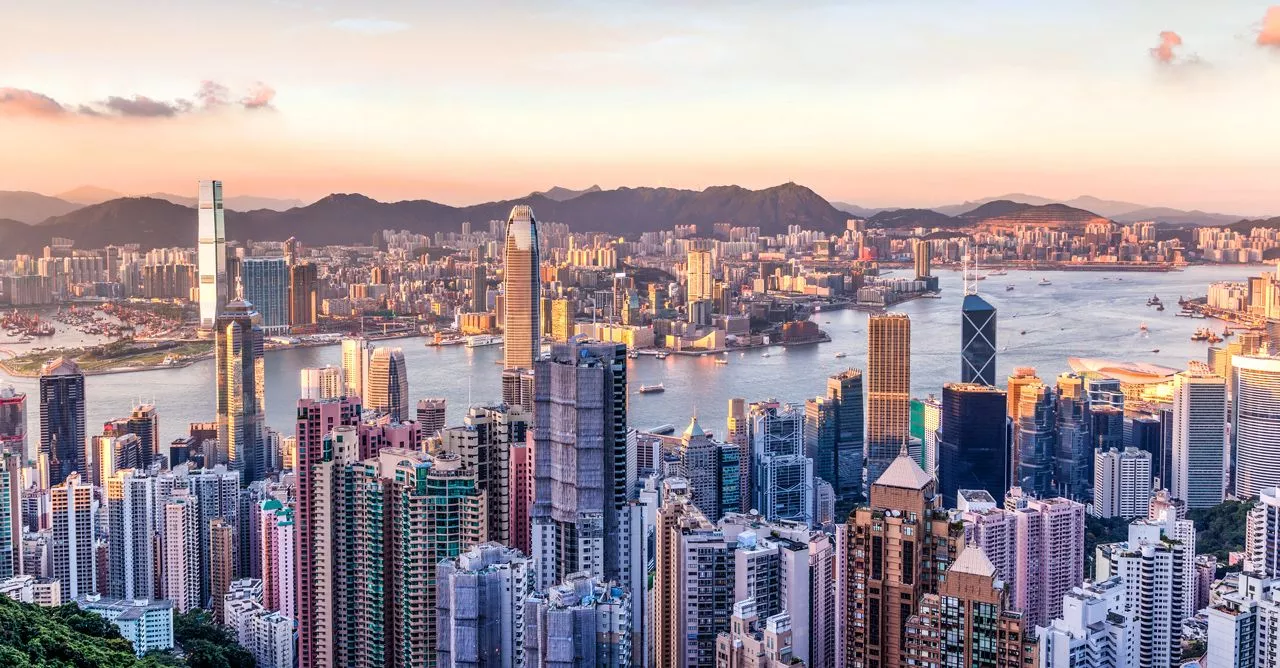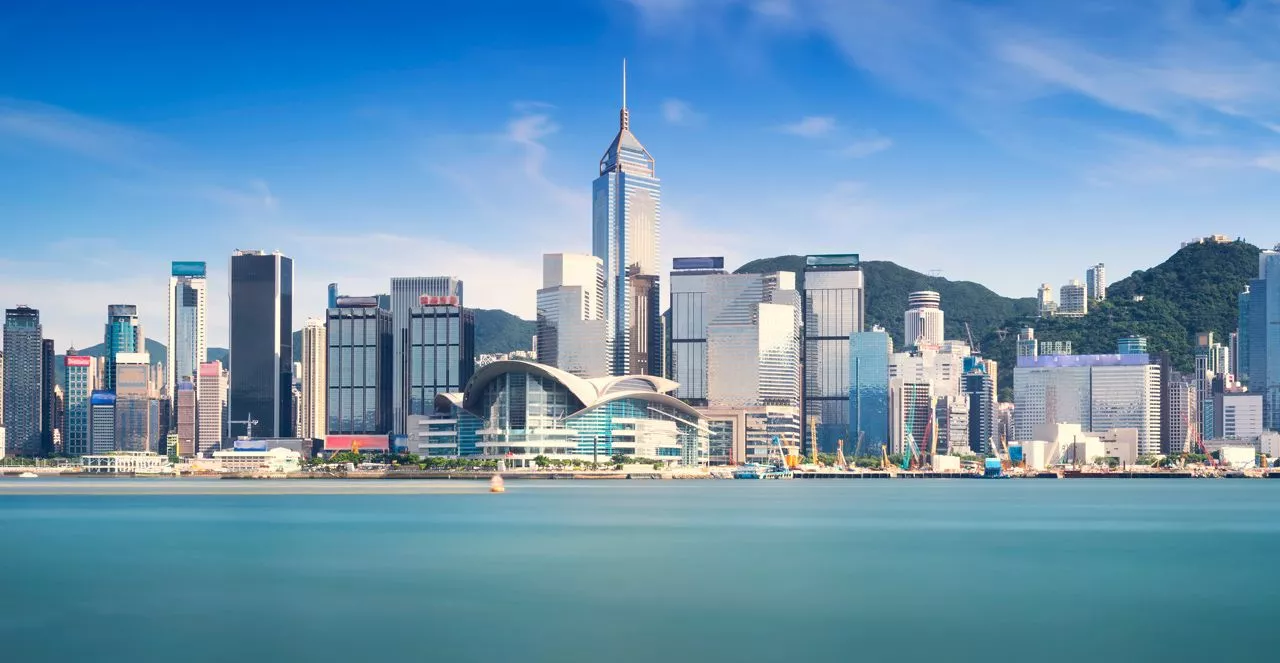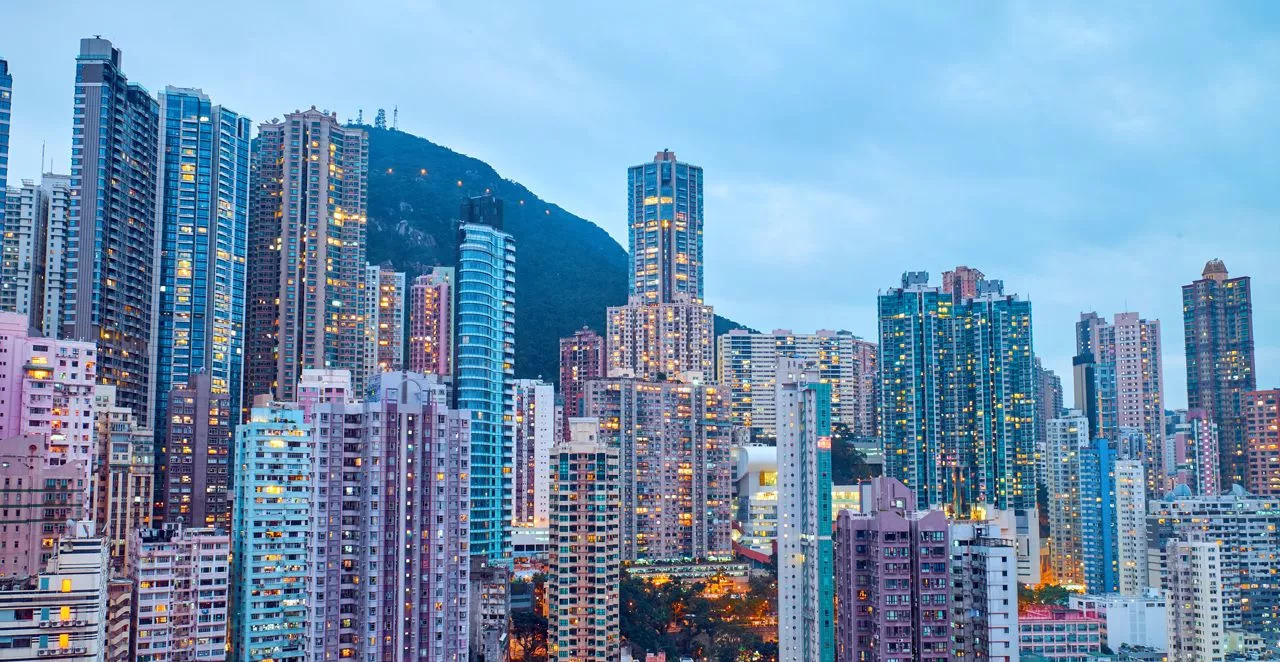Dubai vs popular metropolitan cities

Dubai has been emerging as one of leading real estate destinations, thanks to its affordability, low fees, and investor-friendly business environment. In fact, the emirate ranked third most prominent city worldwide in the latest Global Economic Performance Report by the Economist. Among its competitors are Hong Kong, London, Niseko, Phuket, and Sydney, to name a few, however they don’t offer quite as many benefits as Dubai.
Dubai vs Hong Kong
We have compared the economy, affordability, property acquisition fees, and taxation, among other aspects, of Dubai and Hong Kong, to figure out the advantages and disadvantages of both.
Economic Performance
Both Hong Kong and Dubai are famous for their prosperous and resilient economies. The Hong Kong dollar and UAE dirham are tied to the US dollar, both cities have low taxation, ease of doing business, and excellent free-market environment. As reported by the World Competitiveness Yearbook 2023, Hong Kong ranked seventh in terms of the competitiveness of global economies, whilst the UAE took tenth place. Unlike Dubai, Hong Kong’s economy lacks diversification and is pegged to traditional backbone industries, trading and financial services. At the same time, over the past years, the emirate has been focusing on education, technology and skilled labor to reduce its reliance on oil. Last year, Dubai’s government introduced a 10-year economic development plan to boost 4 key sectors: logistics, finance, manufacturing and tourism. Hong Kong, meanwhile, is expected to become an international IT hub in line with China’s 14th Five-Year Plan.

Affordability
The cost of upscale real estate in Dubai is more affordable than in Hong Kong – AED 3.6M (USD 1M) can get you 1,130 sq. ft in the emirate, whilst in Hong Kong the same sum can only fetch about 226 sq. ft. There are many reasons for the high property prices in Hong Kong, including a policy of maintaining high land costs and low taxation. Other factors that contribute to these high prices in Hong Kong encompass a large population, limited land supply, and the pricing strategies of developers. One of the reasons why Dubai is much more affordable is the extensive supply of homes. In fact, in 2022 real estate developers offered 50,000 new properties, which is the highest number since 2008, according to Dubai Media Office. By the end of 2023, the emirate and Hong Kong will have 32,000 and 28,000 new units, respectively.
Investor-Friendly Laws
Both Dubai and Hong Kong generally have no legal limitations on foreigners owning, selling, renting and developing real estate. There is one huge difference between the two cities though – most of the properties in Dubai are freehold, whilst in Hong Kong all land plots are leasehold, except for St. John’s Cathedral. Dubai is open to all nationalities, however, Hong Kong prohibits property acquisition by Afghans, Albanians, Cubans, North Koreans and mainland Chinese. Legally speaking, in Hong Kong, you don’t technically own the property, but you have the right to occupy it for a certain period of time. Since 1997, the term granted to the tenant has been 50 years. In 2023, however, the Development Bureau proposed a new scheme, under which land leases will be extended for 50 more years free of charge. At the same time, an annual rent amounting to 3 % of the rateable cost of the unit, will still have to be paid. Dubai has a huge advantage in this case, as full ownership here is free for an unlimited period of time and owners can use the property however they wish. For instance, the sale of a freehold unit doesn’t require consent from the government, as opposed to Hong Kong, resulting in less documentation.

Process and Procedures
In Hong Kong, the time it takes to complete the transaction is 2 months from the date of signing the Formal Sale & Purchase Agreement. In Dubai, it usually takes about 4 weeks. The acquisition procedure is very similar in both cities, however the fees do vary. That said, foreigners in Dubai have the same obligations as residents and citizens regarding property fees. Meanwhile, in Hong Kong foreigners are subject to a 15% Ad Valorem Stamp Tax (AVD), in addition to a BSD – Buyer’s Stamp Duty of 15% and a Special Stamp Duty (SSD). The SSD is based on the holding period of the property and varies between 10 and 20 %. There is no stamp duty in the emirate, however, there is a one-time Dubai Land Department (DLD) fee of 4 %. Let’s take a look at the mandatory property acquisition fees for foreigners in Dubai:
<ul><li>AED 580 (USD 158) for apartments and offices</li><li>AED 430 (USD 117) for land</li><li>AED 40 (USD 11) for off-plan</li></ul>
<ul><li>For units priced below AED 500K (USD 136K): AED 2K (USD 545)</li><li>For units priced above AED 500K (USD 136K): AED 4K (USD 1K)</li></ul>
The property acquisition fees in Hong Kong are as follows:
<ul><li>For property transactions below AED 2.7M (USD 750K): AED 845 (USD 230)</li><li>For property transactions over AED 2.7M (USD 750K): AED 1.6K (USD 450)</li></ul>
<ul><li>Property owned for 6 months or less: 20 % of the sale price</li><li>Owned for 6 to 12 months – 15 %</li><li>Owned for 12 to 36 months – 10 % of the sale price</li><li>Owned for 36 months or more – 0 %</li></ul>
To put these figures into perspective, let’s say you have decided to acquire a completed apartment worth AED 800,000 (USD 218,000) and retain ownership for 12 months or more. Let’s compare how much it will cost in total in Dubai versus in Hong Kong: plus AED 580 (USD 158) plus VAT of AED 200 (USD 54) plus VAT of AED 800 (USD 220) As you can see, when taking into account obligatory fees, property in Dubai is more affordable than in Hong Kong.
Rental Income Tax
Dubai does not charge landlords income tax, which makes it highly appealing for investment purposes. The standard income tax rate in Hong Kong stands at 15 % of the net assessable value of real estate per annum. Please note that the city provides a 20 % statutory allowance for repairs and outgoings of rental properties. Let’s say your gross rental income is AED 36K (USD 9.8K), from which AED 7.2K (USD 2K) is deducted. As a result, the net assessable value is 28.8K (USD 7.8K). THerefore, you are obliged to pay about AED 4K (USD 1K) per year as a landlord in Hong Kong.
Rental ROI and Rates
Dubai has one of the best ROIs in the world, generating from 5 to 8 % on average, boosted by an increasing population and high demand. Thus, you can expect lucrative long-term rental income and rapid payback. And as mentioned earlier, the cost of purchasing property here is relatively low while still offering high returns. The average monthly rent in the emirate stands at AED 4K-6K (USD 1K-1.6K) per month. Hong Kong has a 2-3 % ROI, which means that rental profit is not as high as in Dubai. However, as property acquisition here is expensive, units to rent are always in demand, so you can expect a modest but steady income. The average rent for a one-bedroom apartment in Hong Kong can range from AED 5.5K to 9K (USD 1.5K to 2.5K) or more per month.

Residence-via-Investment Programmes
Dubai offers a 2-year visa to those who invest at least AED 750K (USD 204K) in ready property. Another option is the UAE Golden Visa, which is provided with property valued at AED 2M (USD 545K) or more. Both of these visas apply to a spouse and children, whilst the Golden Visa additionally allows the sponsorship of domestic staff. As of 2023, the Hong Kong residence-by-investment programme is suspended, so there is no way to receive a real estate investor visa for now.
Dubai vs. Other Major Cities
We have compiled a list of the most popular destinations for real estate investment to compare them with Dubai. The necessary information is presented in the table for your convenience: (USD 270)
Conclusion
Dubai offers one of the highest ROIs worldwide, which, combined with the absence of income tax, makes it an appealing property investment destination. One of the emirate’s biggest advantages is the Golden Visa programme; out of the previously mentioned 8 destinations, a similar one can only be found in Thailand.. Hong Kong, meanwhile, is distinguished by high property acquisition fees and a low ROI, which makes it not very suitable for increasing investment capital.


